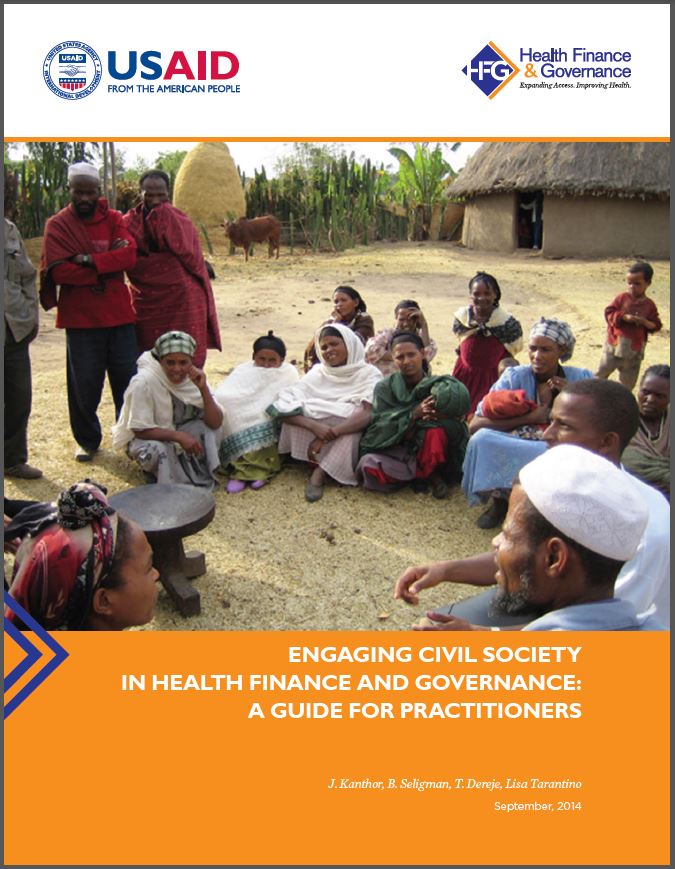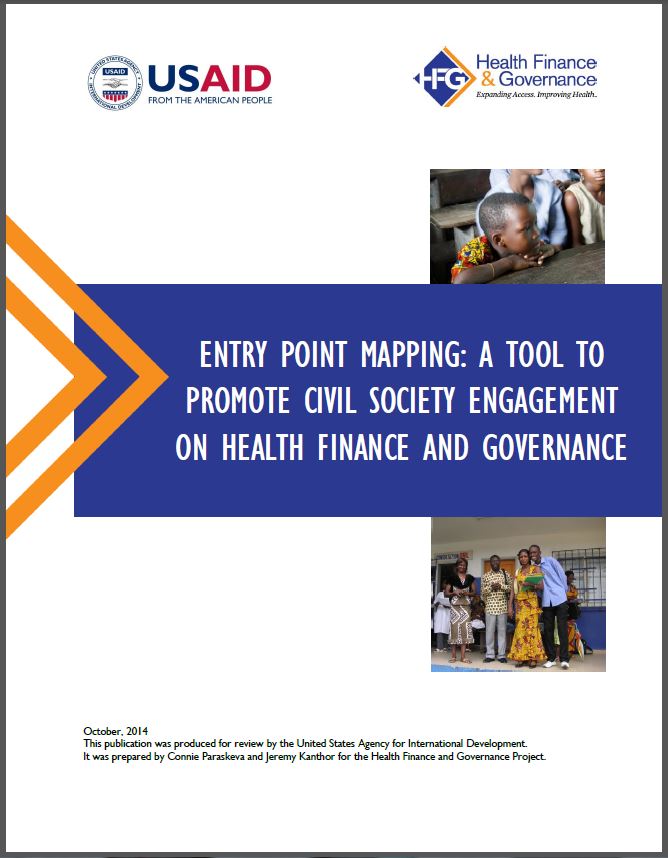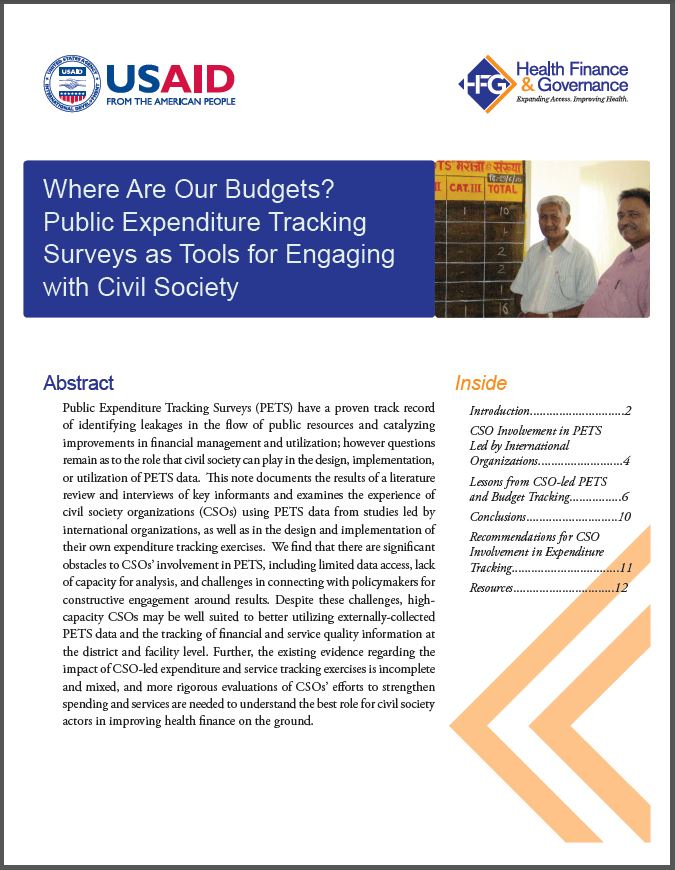Tools to Help Civil Society Engage in Health Finance and Governance
Governments and international donor organizations increasingly acknowledge the role of civil society organizations (CSOs) in strengthening health systems. By facilitating dialogue between government and citizens on issues of health sector priorities, performance, and accountability, CSOs can help to improve health service delivery and contribute to evidence-based policy. Often, however, CSOs lack the skills and tools needed to engage other stakeholders in issues of health finance and governance. Often civil society efforts are unsuccessful because organizations lack a strategy for effectively representing and aligning their interests with systems and procedures of those they are trying to influence. Effectively engaging with public and private sector actors, however, requires specialized tools for advocacy, gathering and using data and deciphering health policy and budgets, and the skills to use these tools.
HFG provides practical advice on the range of tools available to CSOs in the health sector, with a specific focus on social accountability tools to help gain access to information, mobilize collective action and advocacy, and support sanctions. We also offer guidance on designing programs that include the use of mechanisms and tools to engage both civil society and government counterparts that are guided by an understanding of the country context, and that recognize and mitigate potential risks that are significant factors in productive civil society engagement.
Engaging Civil Society in Health Finance and Governance: A Guide for Practitioners
HFG’s guide provides governments and donors practical advice on engaging civil society in health finance and governance in order to meet health sector objectives and to improve health outcomes. Our guide describes the potential and limitations of civil society engagement entry points and presents an array of tools that may be used to do so.
Focusing specifically on the health sector, the HFG Guide offers practitioners a range of tools from which to choose based on the environment they work in and the objectives they seek to achieve. The guide emphasizes approaches that foster collaboration between public health officials and civil society that can improve access to and the quality of health services, ultimately contributing to improved health outcomes. This guide also seeks to provide practical mechanisms for how civil society engagement may be achieved, at the national, subnational, and community levels.
Entry Point Mapping: A Tool to Promote Civil Society Engagement on Health Finance and Governance
Entry Point Mapping provides a methodology for systemic review and identification of mechanisms, forums and public platforms by which civil society organizations can participate in health sector policy formulation, program implementation, and oversight.
This paper presents an Entry Point Mapping Tool designed for CSOs with advocacy experience and public health officials seeking to expand civil society participation and contains a step-by-step guide for researching and analyzing legal entry points for civil society participation in governance of public health care facilities. Because CSOs have varied interests, the tool includes a series of steps for individual CSOs to determine the level of government at which to pursue their specific advocacy interest and the process of collecting targeted information on legally required points of entry for their civic engagement.
Where Are Our Budgets? Public Expenditure Tracking Surveys as Tools for Engaging with Civil Society
For nearly two decades, countries and international organizations have used Public Expenditure Tracking Surveys (PETS) as an important tool to strengthen the governance of health resources. In essence, PETS map the flow of financial resources, from allocation to service provision points. The goal is to find “leakages”— places where funds deviate from their intended flow, either due to error or corruption.
Due to the high cost and other factors, PETS have usually been carried out by large international organizations. This brief analyzes the challenges that prevent local CSOs from more fully participating in these surveys; exploring how those challenges can be overcome, and what opportunities CSOs have for participating in, and using, PETS. Opportunities include tracking service quality, translating and disseminating PETS reports, mining existing PETS data for locally relevant information, and training local officials and organizations in budget tracking and advocacy.






